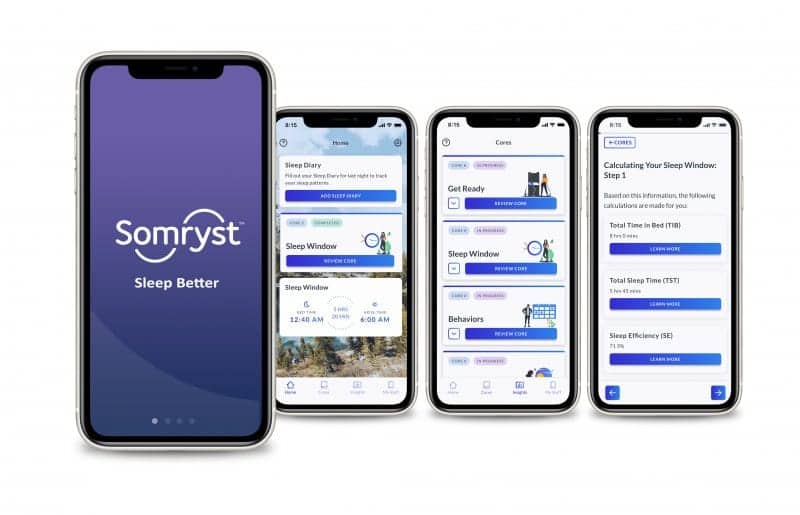Pear Therapeutics’ Somryst, the only FDA-authorized prescription digital therapeutic for the treatment of chronic insomnia, will be added to Serve You Rx’s formularies and be administered as a standard pharmacy benefit for its members, effective July 1, 2021. Somryst, intended for use in the treatment of patients 22 years of age and older with chronic insomnia, addresses the underlying issues of chronic insomnia by delivering cognitive behavioral therapy for insomnia (CBT-I).
“The recommended firstline treatment for chronic insomnia is nonpharmaceutical CBTi, and this prescription digital therapeutic supports that line of treatment,” says Debra Echlin, PharmD, CGP, vice president of clinical programs for Serve You Rx, a national pharmacy solutions provider based in Milwaukee, Wisc, in a release. “Somryst addresses the root of the issue by teaching patients to modify behaviors, habits, and thought patterns that may contribute to chronic insomnia.”
As part of Serve You Rx’s commitment to make treatment of chronic health conditions easier, Serve You Rx will provide prescription benefit coverage of Somryst to their members as a standard offering on all formularies.
[RELATED: How to Treat Patients with Chronic Insomnia Disorder]
“We are pleased that Serve You Rx continues to be at the forefront of providing access to prescription digital therapeutics. By adding Somryst on formulary along with reSET and reSET-O, Serve You Rx now covers Pear’s total product portfolio,” says Julia Strandberg, chief commercial officer of Pear Therapeutics, in a release. “Together, we will deliver participating clients and members with a meaningful and accessible first-line treatment option to treat chronic insomnia.”
Over six to nine weeks, depending on a patient’s pace, Somryst takes patients through algorithm-driven sleep restriction and cognitive behavioral therapy for insomnia, while also providing clinicians with timely data on patient progress via the Pear.MD dashboard. Research shows that use correlates with lasting improvements in sleep outcomes at 12 and 18 months for people suffering from chronic insomnia. In clinical studies, patients treated with the PDT reduced the amount of time it took to fall asleep by 45%, reduced the amount of time spent awake at night by 52%, and reduced the severity of insomnia symptoms by 45%, with continued improvement at six and 12 months post treatment.



